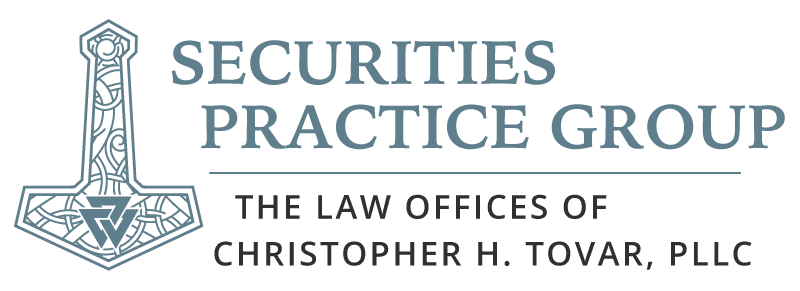Dodd-Frank Whistleblower Lawyer
The SEC’s Dodd-Frank Whistleblower Program
Set up about a decade ago, this program has paid out some $387 million since 2012 in monetary rewards to 72 individuals providing information used in enforcing U.S. securities laws.
Individuals voluntarily providing the SEC with original information leading to an enforcement action resulting in over $1 million in monetary sanctions may receive an award ranging from 10% to 30% of the funds collected. That is, 10-30% of whatever the SEC recovers above that first $1 million haircut.
Dodd-Frank features protections for insiders at public companies to report material information about securities violations to the SEC without fear of reprisal. Employees who have faced retaliation have brought lawsuits under Dodd-Frank, and the SEC has taken legal action against several employers for retaliating against whistleblowing employees. Retaliation by employers can in some cases enhance an award to a whistleblower.
The SEC also penalizes employers for any efforts to keep their employees from providing information to it. Since 2012 the SEC brought and settled nine enforcement actions against employers for using such tactics. Examples include prohibitions on speaking with the SEC, requiring employees and former employees to notify the employer’s legal department before communicating with the SEC, and waiving the right to receive a whistleblower award.
The nerve of some people…
So, the bottom line is, you can participate safely in the SEC Whistleblower Program and earn an award, even after your boss got you to sign an agreement not to speak to the SEC.
Nice, huh?
Who is a Whistleblower?
Dodd-Frank defines a “whistleblower” as an “individual … or two or more individuals acting jointly.” A corporation or other such entity is not eligible for whistleblower status. See Rule 21F-2(a). Rule 21F-8(c) specifically excludes SEC employees, the U.S. Department of Justice, certain regulatory agencies and self-regulatory organizations, any law enforcement organization, and foreign governments.
What Does “Voluntarily Provide” Mean?
Under Rule 21F-4(a)(1), (2), information is provided “voluntarily” only if the whistleblower provides it to the SEC before receiving a request, inquiry, or demand for it 1) from the SEC; 2) in connection with an investigation, inspection or examination by the Public Company Accounting Oversight Board (PCAOB) or a self-regulatory organization; or 3) related to an investigation by Congress, another federal agency or authority, or a state attorney general or securities regulator.
What is “Original Information?”
Under Rule 21F-4(b)(1), to qualify as “original information” supporting a claim for an award, the whistleblower’s tip must consist of information that is: 1) derived from the individual’s “independent knowledge” or “independent analysis”; 2) not already known to the SEC from any other source (unless the whistleblower is the “original source” of the information, such as where he or she had first reported the information to the Department of Justice or Department of Labor, which then passed the information on to the SEC); and 3) not “exclusively derived” from allegations made in certain judicial or administrative hearings, government reports, audits or investigations, or derived from the media, unless the whistleblower is “a source of the information.”
Your Whistleblower Award
The size of your outcome will depend on the amount of money collected by the SEC in its judicial or administrative action. After the first $1 million, 10-30% of anything above that amount could be awarded to the whistleblower. That percentage will be determined at the SEC’s discretion, based on several factors, including the extent to which the information “significantly contributed” to the success of an investigation and resulting enforcement action, allowing the SEC to bring a successful action in significantly less time or with significantly fewer resources, bring additional successful claims, or add more parties.
The CFTC Also Participates in This Program
The Commodities Futures Trading Commission participates in the Dodd-Frank whistleblower program just like the SEC, same general rules applying, and using the same forms and other documentation to file your claim. If you are a commodities trader and find accounting or other irregularities or compliance and supervision issues at your firm, you may also operate as a whistleblower in this context.
If you feel you are in need of a “whistleblower layer,” contact the Law Offices of Christopher H. Tovar to schedule an appointment and discuss your original information. We are well experienced in this area and can help you maximize your outcome.
Our Law Office Provides Legal Counsel & Representation for Brokers in Employment-Related Law.
Moving Your Book of Business
Employment Transition Strategies
Non-Solicit/Non-Compete Agreements
TROs and Injunctions
Read More »
Corporate Raiding
Dodd-Frank Whistleblower Program
Employment Agreements
Independent Contractor Agreements
Employee Handbooks and HR Policies
Are You Ready to Talk About Your Situation?
Contact the Attorneys at Law Offices of Christopher H. Tovar, PLLC.
"*" indicates required fields
Securities Practice Group

The Law Offices of Christopher H. Tovar, PLLC are headquartered in Southeast Michigan. Christopher H. Tovar is licensed in Michigan, Texas, Florida, New York, and Illinois and operates nationwide.*
* Michigan, Florida, Illinois, California, and New Jersey require bar membership to arbitrate FINRA cases in their jurisdictions. The Law Offices of Christopher H. Tovar, PLLC maintains relationships with attorneys in all 50 states and can arbitrate your case on a pro hac basis.
Tags: whistleblower lawyer whistleblower attorney dodd frank whistleblower

